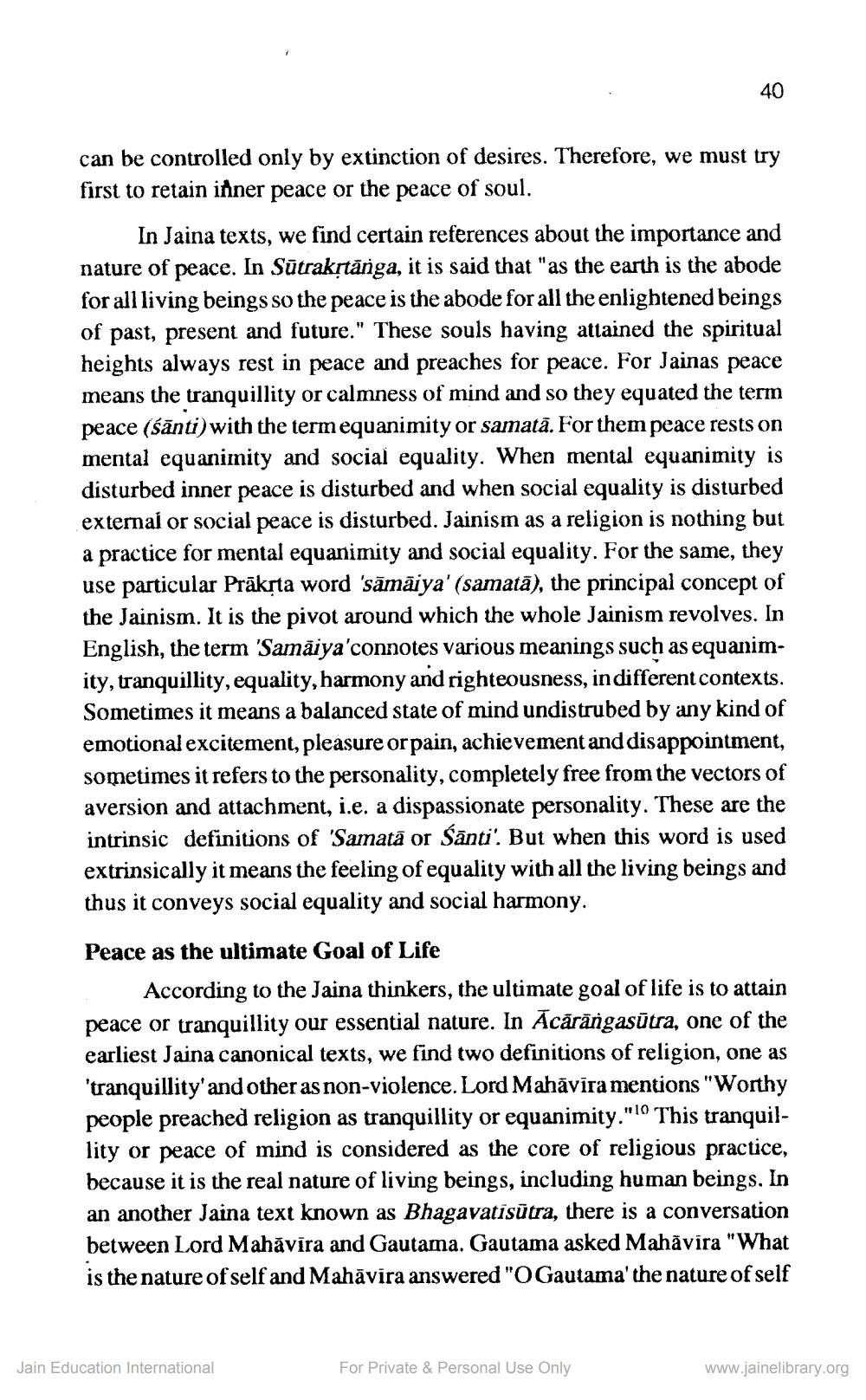________________
40
can be controlled only by extinction of desires. Therefore, we must try first to retain inner peace or the peace of soul.
In Jaina texts, we find certain references about the importance and nature of peace. In Sūtrakstānga, it is said that has the earth is the abode for all living beings so the peace is the abode for all the enlightened beings of past, present and future." These souls having attained the spiritual heights always rest in peace and preaches for peace. For Jainas peace means the tranquillity or calmness of mind and so they equated the term peace (śānti) with the term equanimity or samatā. For them peace rests on mental equanimity and social equality. When mental equanimity is disturbed inner peace is disturbed and when social equality is disturbed external or social peace is disturbed. Jainism as a religion is nothing but a practice for mental equanimity and social equality. For the same, they use particular Prāksta word 'sāmāiya' (samatā), the principal concept of the Jainism. It is the pivot around which the whole Jainism revolves. In English, the term 'Samāiya'connotes various meanings such as equanimity, tranquillity, equality, harmony and righteousness, in different contexts. Sometimes it means a balanced state of mind undistrubed by any kind of emotional excitement, pleasure or pain, achievement and disappointment, sometimes it refers to the personality, completely free from the vectors of aversion and attachment, i.e. a dispassionate personality. These are the intrinsic definitions of Samatā or sānti'. But when this word is used extrinsically it means the feeling of equality with all the living beings and thus it conveys social equality and social harmony.
Peace as the ultimate Goal of Life
According to the Jaina thinkers, the ultimate goal of life is to attain peace or tranquillity our essential nature. In Acārāngasutra, one of the earliest Jaina canonical texts, we find two definitions of religion, one as 'tranquillity'and other as non-violence. Lord Mahāvīra mentions "Worthy people preached religion as tranquillity or equanimity."lo This tranquillity or peace of mind is considered as the core of religious practice, because it is the real nature of living beings, including human beings. In an another Jaina text known as Bhagavatísūtra, there is a conversation between Lord Mahāvīra and Gautama. Gautama asked Mahăvira "What is the nature of self and Mahāvira answered "O Gautama'the nature of self
Jain Education International
For Private & Personal Use Only
www.jainelibrary.org




